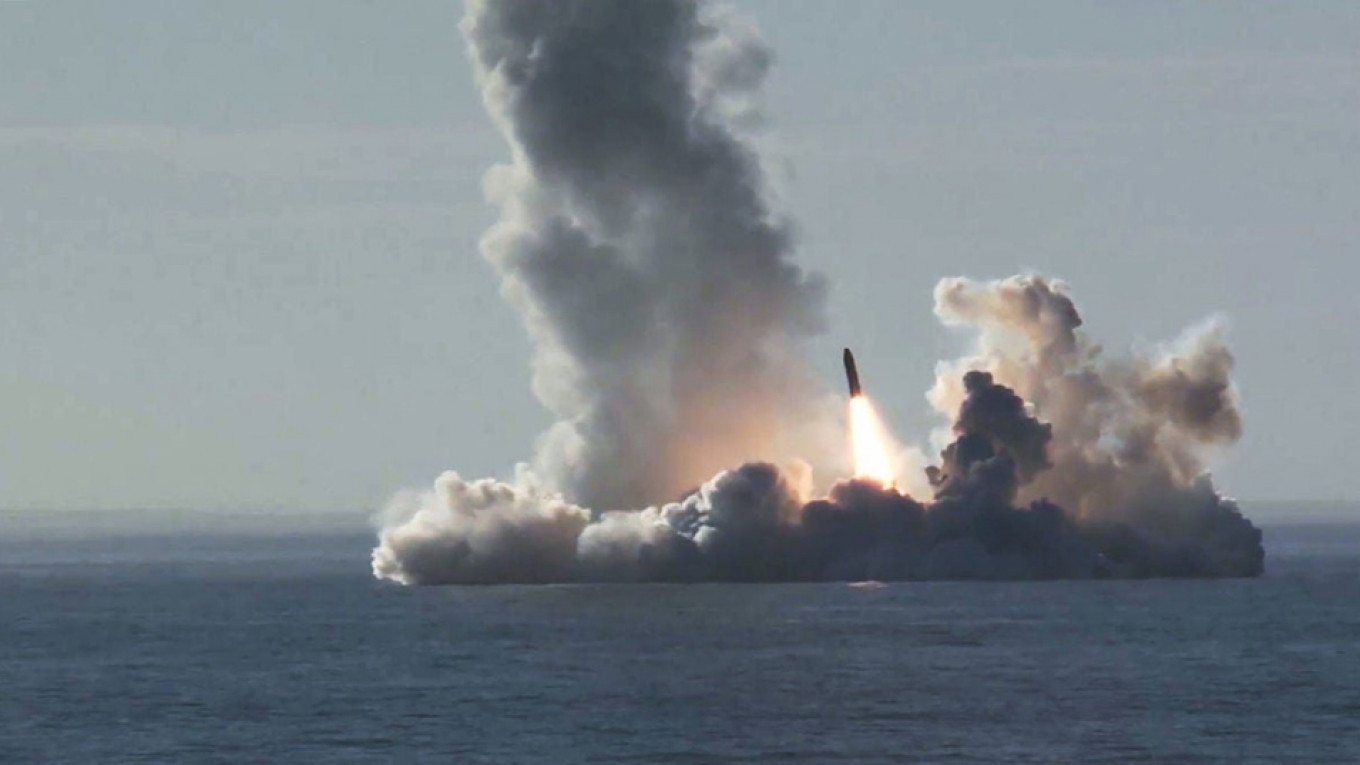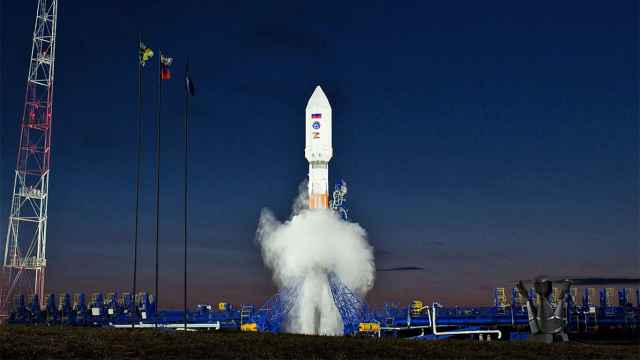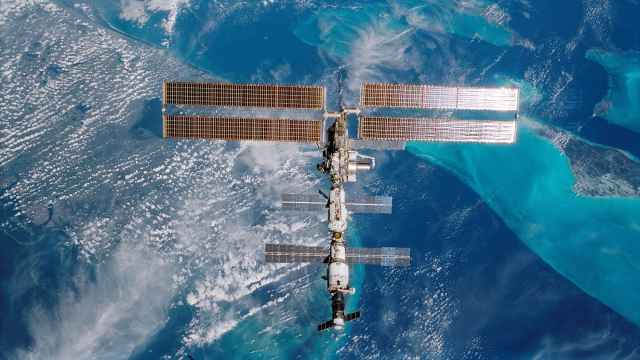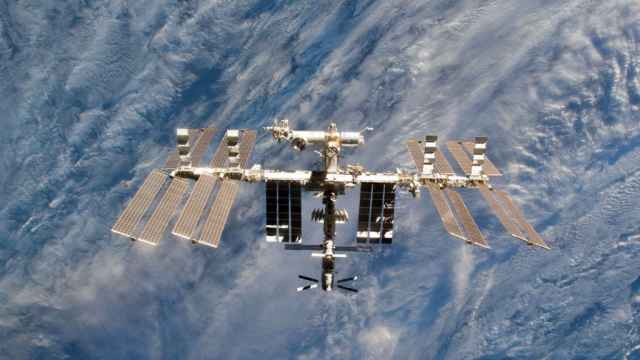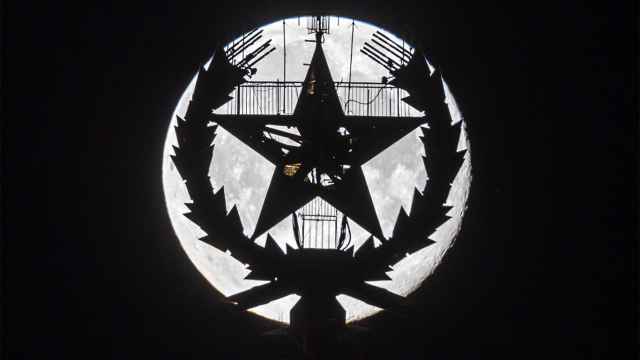Russia on Friday dismissed accusations from the United States and Britain that it had tested an anti-satellite weapon in space as "propaganda."
Moscow responded after the United States Space Command on Thursday accused Russia of test-firing an anti-satellite weapon in space and warned the threat against U.S. systems was "real, serious and increasing."
The head of Britain's Space Directorate, Air Vice-Marshal Harvey Smyth, also reacted, tweeting that "actions of this kind threaten the peaceful use of space."
The Russian Foreign Ministry insisted on Moscow's "commitment to obligations on the non-discriminatory use and study of space with peaceful aims.
"We call on our U.S. and British colleagues to show professionalism and instead of some propagandistic information attacks, sit down for talks," the ministry said in a statement.
The U.S. said that Russia conducted a "non-destructive test of a space-based anti-satellite weapon."
"Clearly this is unacceptable," tweeted U.S. nuclear disarmament negotiator Marshall Billingslea, adding that it would be a "major issue" discussed next week in Vienna, where he is in talks on a successor to the New START treaty.
The treaty caps the nuclear warheads of the U.S. and Russia — the two Cold War-era superpowers.
The Russian Foreign Ministry said tests carried out by the country's defence ministry on July 15 "did not create a threat for other space equipment and most importantly, did not breach any norms or principles of international law."
It in turn accused the U.S. and Britain of moves to develop anti-satellite weaponry.
'Inspector satellites'
The U.S. and Britain "naturally keep silent about their own efforts," it said, claiming the countries had "programs on the possible use of 'inspector satellites' and 'repair satellites' as counter-satellite weapons."
Commenting earlier Friday on the accusations, Kremlin spokesman Dmitry Peskov said Russia supports "full demilitarization of space and not basing any type of weapons in space."
The U.S. Space Command said the test consisted of Russia's satellite called Cosmos 2543 injecting an object into orbit.
Russian state media reported in December that a satellite called Cosmos-2542, which was launched in November 2019 by the Russian military, ejected another smaller satellite once in space.
The Russian Defense Ministry said the inspector-satellite was meant to "monitor the condition of Russian satellites," but state daily Rossiiskaya Gazeta said it could also "get information from somebody else's satellites."
The system is the same one that Space Command raised concerns about earlier this year, when it manoeuvred near a U.S. government satellite, said General Jay Raymond, head of U.S. Space Command.
"This is further evidence of Russia's continuing efforts to develop and test space-based systems, and consistent with the Kremlin's published military doctrine to employ weapons that hold U.S. and allied space assets at risk," Raymond said in a statement.
It is the latest example of Russian satellites behaving in a manner "inconsistent with their stated mission," the Space Command statement added.
"This event highlights Russia's hypocritical advocacy of outer space arms control," said Christopher Ford, a U.S. assistant secretary of state for arms control.
The statement also came as China launched a rover to Mars on Thursday, a journey coinciding with a similar US mission as the powers take their rivalry into deep space.
A Message from The Moscow Times:
Dear readers,
We are facing unprecedented challenges. Russia's Prosecutor General's Office has designated The Moscow Times as an "undesirable" organization, criminalizing our work and putting our staff at risk of prosecution. This follows our earlier unjust labeling as a "foreign agent."
These actions are direct attempts to silence independent journalism in Russia. The authorities claim our work "discredits the decisions of the Russian leadership." We see things differently: we strive to provide accurate, unbiased reporting on Russia.
We, the journalists of The Moscow Times, refuse to be silenced. But to continue our work, we need your help.
Your support, no matter how small, makes a world of difference. If you can, please support us monthly starting from just $2. It's quick to set up, and every contribution makes a significant impact.
By supporting The Moscow Times, you're defending open, independent journalism in the face of repression. Thank you for standing with us.
Remind me later.


